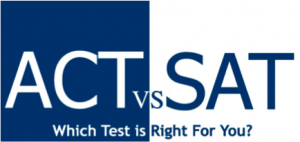Noticeably, the majority of students at ISB planning to apply to universities in the United States choose to take the SAT over the ACT. However, it is important to ask—why?
Many students perceive the SAT as being more popular, therefore perhaps more valued by university admissions than the ACT. However, this is a false assumption. Most universities consider the tests interchangeable, meaning they would accept and value each tests’ scores equally.
It is of utmost importance that a student chooses wisely which test to take. The standardized test portion of college applications is ultimately a duel of numbers. There have been many incidences where students have scored substantially higher on either the SAT or ACT, simply having abilities that allow them to perform significantly better on one test than the other.
So, which test should you take? To determine the answer to this very important question, we will be looking at the key differences between the two tests.
1) Time Management: While managing your time is important on any test, it is of ultimate importance on one test especially—the ACT. The SAT consists of ten sections, three parts of Math, Critical Reading, and Writing each, and one un-scored experimental section. Run out of time on one section, and you’ve got two more shots at redeeming yourself and still coming out with good all-around score. But run out of time on one of the four different sections of the ACT, and your chances are over.
2) Comprehension: It is common knowledge that the SAT tries to trip you up. Intentionally. The SAT is a scholastic aptitude test, meaning it measures logical reasoning and verbal skills. Therefore, the questions are meant to be somewhat confusing to test understanding. The ACT, on the other hand, is much more straightforward; however, the concepts tested are considered to be more advanced in level of difficulty.
3) Math: Related to the previous point, math on the ACT covers several topics not tested in the SAT, such as basic trigonometry, imaginary numbers, and logarithmic functions. This means that if you haven’t learned these concepts in math class yet, you may find the ACT math section to be considerably more difficult than the SAT. However, keep in mind the previous point—math questions on the SAT may seem more difficult because of the way the question is phrased, when the material tested is in fact quite simple.
4) Science: The ACT is perhaps infamously known for its peculiar science section. However, don’t be fooled. The science section on the ACT doesn’t, in fact, test knowledge of scientific concepts like biology and physics, but rather common sense and data management. It focuses on the analysis and understanding of graphs, tables, and charts. Students may be presented with several graphs and asked to draw a conclusion based on the relationships between the data. However, essentially, no real scientific knowledge is needed—it’s all on the graphs.
5) Vocabulary: Ranked lower in terms of influence because of the upcoming structural changes in the 2016 SAT, flashcards have always been a key trademark of SAT prep. A considerable portion of the SAT Critical Reading section relies on a student’s knowledge of extremely advanced vocabulary words, most of which are foreign even to fluent English speakers. Vocabulary is less emphasized on the ACT. While having a decent understanding of the English language is undoubtedly very useful in the Reading section, the ACT does not require a student to know the contextual meaning of words like superfluous or magnate as the current SAT does.
A good way to decide which test would be better suited for you is to find free practice tests/sections online and try them out to see how you would do. Ultimately, it is up to you which test they would like to take, however, it is important to always be open to alternatives that could benefit your future. Best of luck to all test-takers!
Thanya Chat



